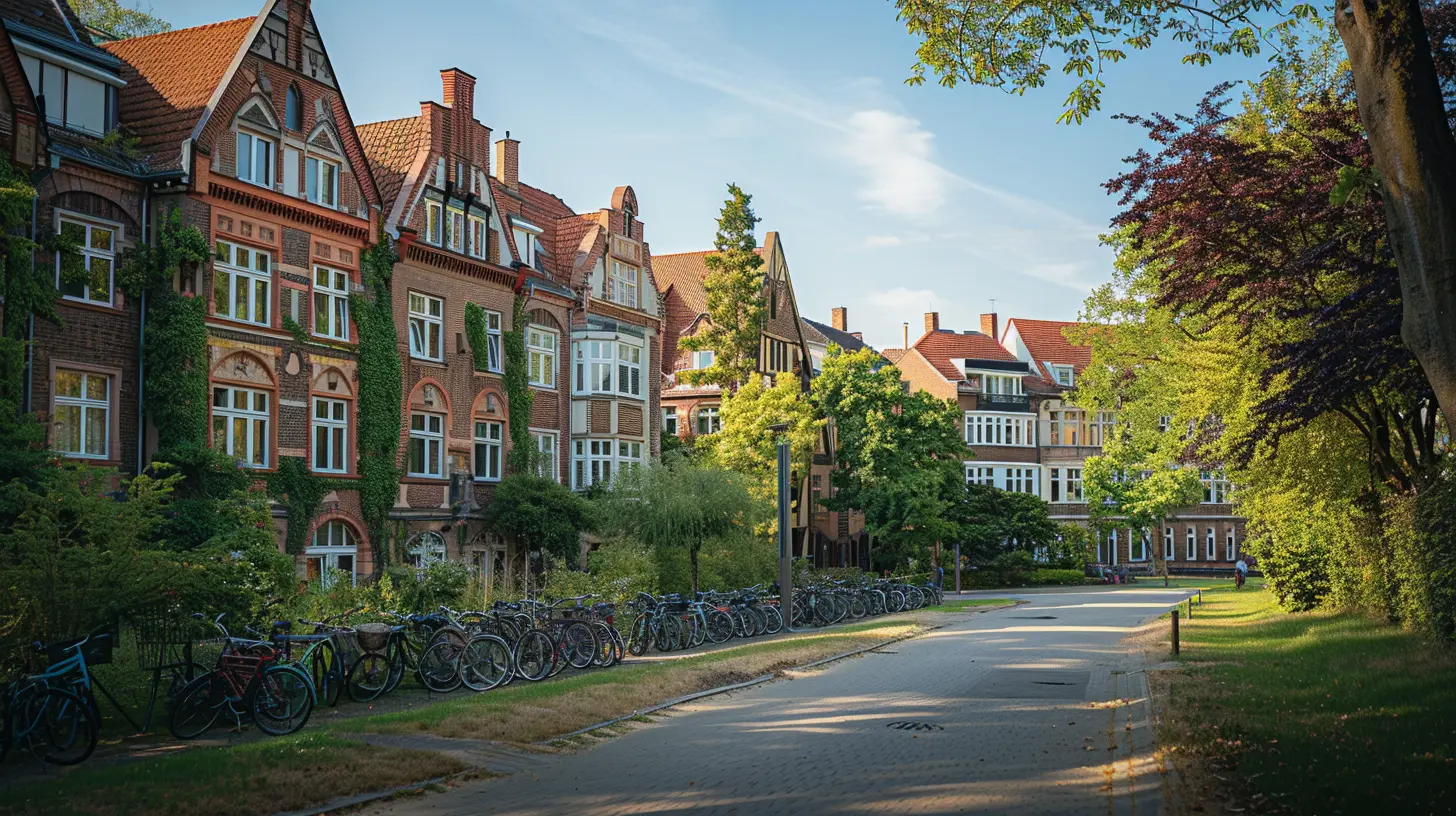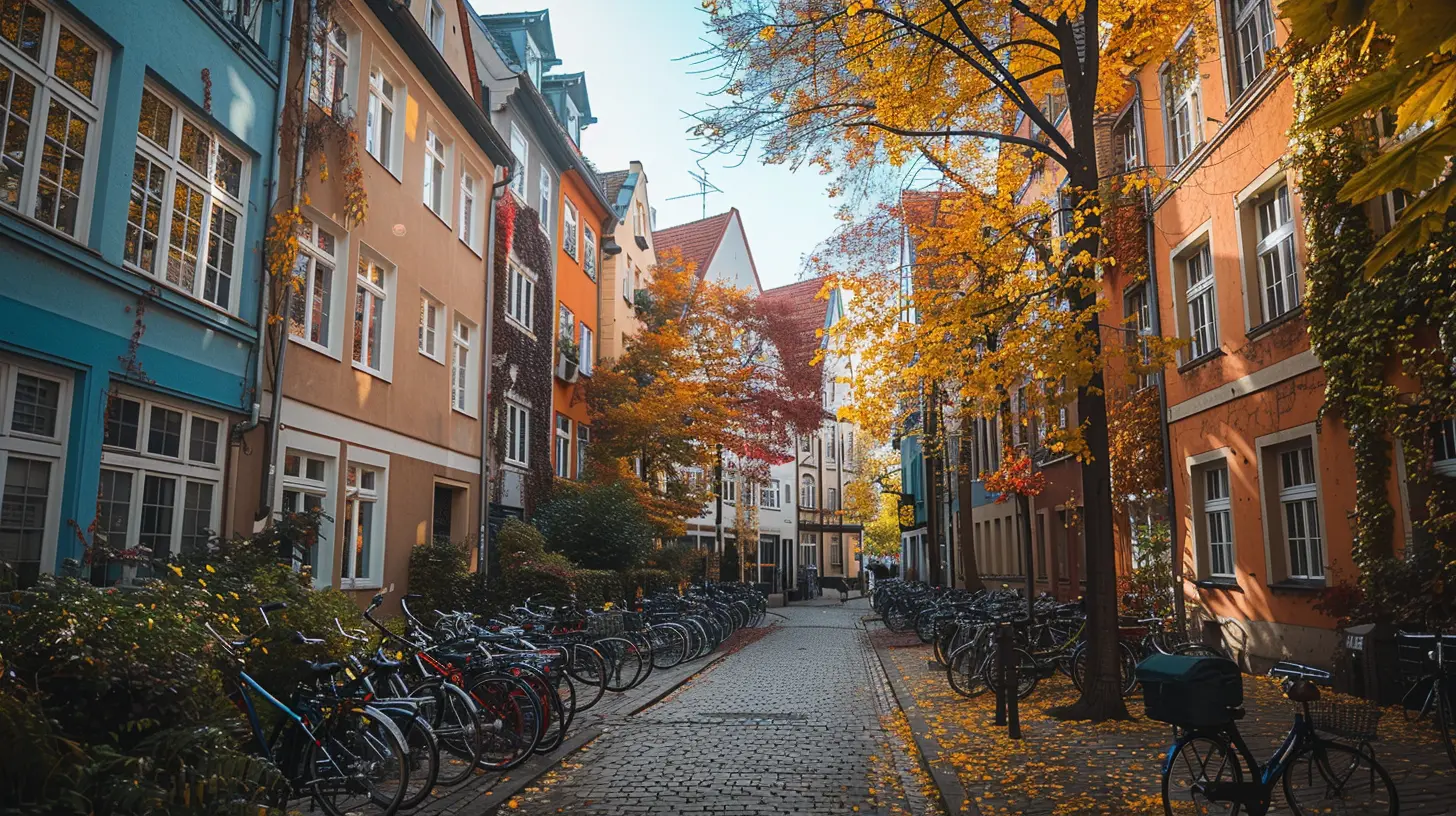Student Housing Abroad: How to Choose the Best Accommodation
4 September 2025
So, you've finally made the big decision to study abroad—congrats! You're probably buzzing with excitement, nerves, and a million questions. One of the biggest decisions you'll face before hopping on that plane? Where you're going to live. Yup, student housing is a huge part of your study abroad experience—arguably just as important as your school or course. The place you call “home” while studying abroad will shape your daily life, social circle, and even your overall happiness.
In this guide, we're going to break down how to choose the best student accommodation while studying abroad. Whether you’re heading to London, Sydney, Berlin, Toronto, or Tokyo—these practical tips apply wherever you're off to.
Why Your Student Housing Choice Matters
Before we dive into the nitty-gritty, let’s get one thing straight: where you live affects everything. Think about it—your room is your safe space, your comfort zone, your crash pad after long days. If you love where you live, it can seriously boost your study abroad experience. On the flip side, if your housing situation is a nightmare, it might turn every day into a stress-fest.So, let’s give your housing choice the attention it deserves.
Types of Student Housing Abroad
Let’s start by understanding what’s out there. Depending on your destination and budget, your options may vary, but here are the most common types:1. University Dormitories (On-Campus Housing)
Good ol’ student dorms. Think communal kitchens, shared bathrooms, and maybe a slightly questionable couch in the common room. On-campus housing is often arranged by your university or exchange program.Pros:
- Location—you're right on or near campus.
- Easy way to meet other students, especially international ones.
- Usually more affordable.
Cons:
- Less privacy.
- Strict rules (no guests, curfews).
- Variable quality.
2. Private Student Residences
These are like dorms, but fancier. Private companies lease out entire buildings just for students. Imagine modern rooms, gym access, laundry facilities, co-working spaces—all the bells and whistles.Pros:
- More amenities.
- More independence than university housing.
- Still a mix of international students.
Cons:
- Can be pricey.
- May feel a bit “commercial” or impersonal.
3. Shared Apartments (Flatshares)
This is a super popular option across Europe and big cities. You rent a room in a multi-bedroom apartment and share kitchens, bathrooms, and living spaces with roommates.Pros:
- More independence and privacy.
- Can be relatively affordable.
- Great way to meet locals.
Cons:
- You have to deal with house rules and cleaning rotations.
- No built-in student support system.
- You’ll need to furnish it sometimes.
4. Homestays
This means living with a local host family. You get your own room (usually), share meals with the family, and experience real local culture.Pros:
- Immersive cultural experience.
- Meals often included.
- Can improve your language skills.
Cons:
- Less freedom and privacy.
- You’ll have to adapt to someone else’s routine.
5. Renting Alone (Studio or Apartment)
This is the dream for introverts—or anyone who just needs their own space.Pros:
- Total privacy.
- You set all the rules.
- Comfort and quiet.
Cons:
- Most expensive option.
- Can get lonely.
- More responsibility (bills, maintenance, etc.).
How to Choose the Best Accommodation Abroad
There’s no single “best” solution. The right accommodation depends on your personality, budget, lifestyle, and goals. But don’t worry—we’ve got a roadmap to guide you through the decision process.1. Set a Realistic Budget (and Stick to It)
Budget isn't just about rent. Add up ALL the costs: utilities, internet, transportation, food, and even furniture (if you’re renting an unfurnished place). Once you’ve tallied it all, set a monthly limit.💡 Pro tip: Always keep a cushion for unexpected expenses. A broken heater or a surprise deposit can hurt if you’re not ready.
2. Location, Location, Location
Sure, that cute apartment with rooftop views might be tempting—but if it’s an hour from your campus, forget it. Long commutes can ruin your routine, wear you down, and eat up your budget.Ask yourself:
- How far is it from the university?
- Is public transport nearby?
- Are grocery stores, cafés, and banks within walking distance?
Being “in the action” makes it easier to make friends, join events, and feel part of the local vibe.
3. Safety First
You’re in a new country. You don’t know your way around yet, so safety should be a top priority. Before signing anything:✅ Check crime statistics for the neighborhood.
✅ Ask your university for safe housing recommendations.
✅ Make sure there’s proper lighting, secure locks, and maybe even a doorman.
Read reviews from other students! If a building has had issues in the past, the internet won’t stay quiet about it.
4. Know What’s Included
Not all housing is created equal. Some places include utilities, furniture, and Wi-Fi. Others? Not so much.Ask upfront:
- Is the place fully furnished?
- Are bills included?
- Is Wi-Fi fast and reliable?
A place that seems cheap at first might turn out to be expensive once you start adding all the extras.
5. Choose Your Roommates Wisely
If you’re doing a flatshare, roommates can make or break your experience. You're basically choosing your temporary family.Some things to think about:
- Do they share your habits (early riser vs. night owl)?
- Are they fellow students or working professionals?
- Are they clean? Respectful? Loud?
If possible, try video chatting with potential roommates before agreeing to live together.
6. Consider Your Lifestyle
Are you a social butterfly or a quiet bookworm? Love cooking or live off takeout? Into yoga or loud house parties?Match your housing to your vibe. If peace and quiet help you study, then a buzzing party house might not be your thing. And if you love being around people, a solo studio could feel isolating.
7. Check Lease Terms Carefully
Before signing anything, read the lease. Then read it again. And then maybe one more time.Look out for:
- Length of contract—can you leave early if needed?
- Deposit requirements.
- Rules about guests, smoking, or pets.
- Cancellation policies (especially during emergencies like, say, a pandemic).
Don’t be afraid to ask questions or request a translated version if it’s not in English.
8. Ask for Photos or Do a Virtual Tour
Pictures can be deceiving. That wide-angle lens makes every room look huge, doesn’t it?To avoid nasty surprises:
- Ask for a real-time video tour.
- Request up-to-date pictures.
- Use Google Maps to explore the neighborhood virtually.
And if something feels off, trust your gut. If the landlord is dodgy or the photos don’t match the address, walk away.
9. Talk to Other Students
Word of mouth is gold. No one knows the local student housing scene better than people who’ve recently been in your shoes.Hop on Reddit threads, Facebook groups, or student forums. Ask:
- Where did you stay?
- What would you do differently?
- Any landlords or agencies to avoid?
You'd be surprised how much you can learn in just a few comment threads.
10. Book Early (But Not Too Early)
Student housing in hot destinations goes FAST. Especially in places like Amsterdam, Paris, or Melbourne.But… booking too early can also backfire. You might find something better or realize you picked the wrong neighborhood.
Here’s a balanced approach:
- Start researching 3-6 months before your move.
- Narrow choices by 2-3 months.
- Secure the place about 1-2 months before arrival.
Just don’t leave it to the last minute—panic renting never ends well.
Bonus: Tips to Settle In After Moving
Choosing the place is just step one. Here’s a few easy ways to make it feel like home:- Add personal touches—photos, plants, cozy lighting.
- Learn your way around the block: where’s the best coffee? Grocery store?
- Introduce yourself to neighbors or roommates early.
- Create a routine. It helps you feel grounded in a new environment.
Remember, it takes a bit of time to adjust. Feeling homesick, overwhelmed, or awkward is totally normal.
Quick Checklist: Your Ideal Student Housing Abroad
Let's wrap it up with a lightning checklist. Does your dream student housing have…- ✅ Affordable rent within your budget?
- ✅ Proximity to campus and city center?
- ✅ Furnished room with all essentials?
- ✅ Safety and good neighborhood vibes?
- ✅ Easy access to public transportation?
- ✅ Positive reviews from other students?
- ✅ Clear lease terms with no shady clauses?
If you can tick most of these boxes, you’re on the right track.
Final Thoughts
Choosing student housing abroad isn’t just about finding a place to sleep—it’s about finding a place to live. A good living setup can help you thrive academically, socially, and emotionally. Don't rush the process. Ask questions, do your research, and figure out what “home” means to you.And remember, it’s okay to make mistakes—you’re learning not just in the classroom, but in life. Every hiccup, every awkward roommate encounter, every cold shower in a questionable bathroom? It’s all part of the experience.
So go on, find your new home. This is where the adventure really begins.
all images in this post were generated using AI tools
Category:
Study AbroadAuthor:

Zoe McKay
Discussion
rate this article
1 comments
Georgina Torres
Choosing the right student housing abroad can shape your experience. Take your time, explore options, and remember—finding a supportive community is just as important as location.
September 20, 2025 at 4:12 AM

Zoe McKay
Absolutely! A supportive community can greatly enhance your study abroad experience, so consider both options and atmosphere when choosing your housing.


